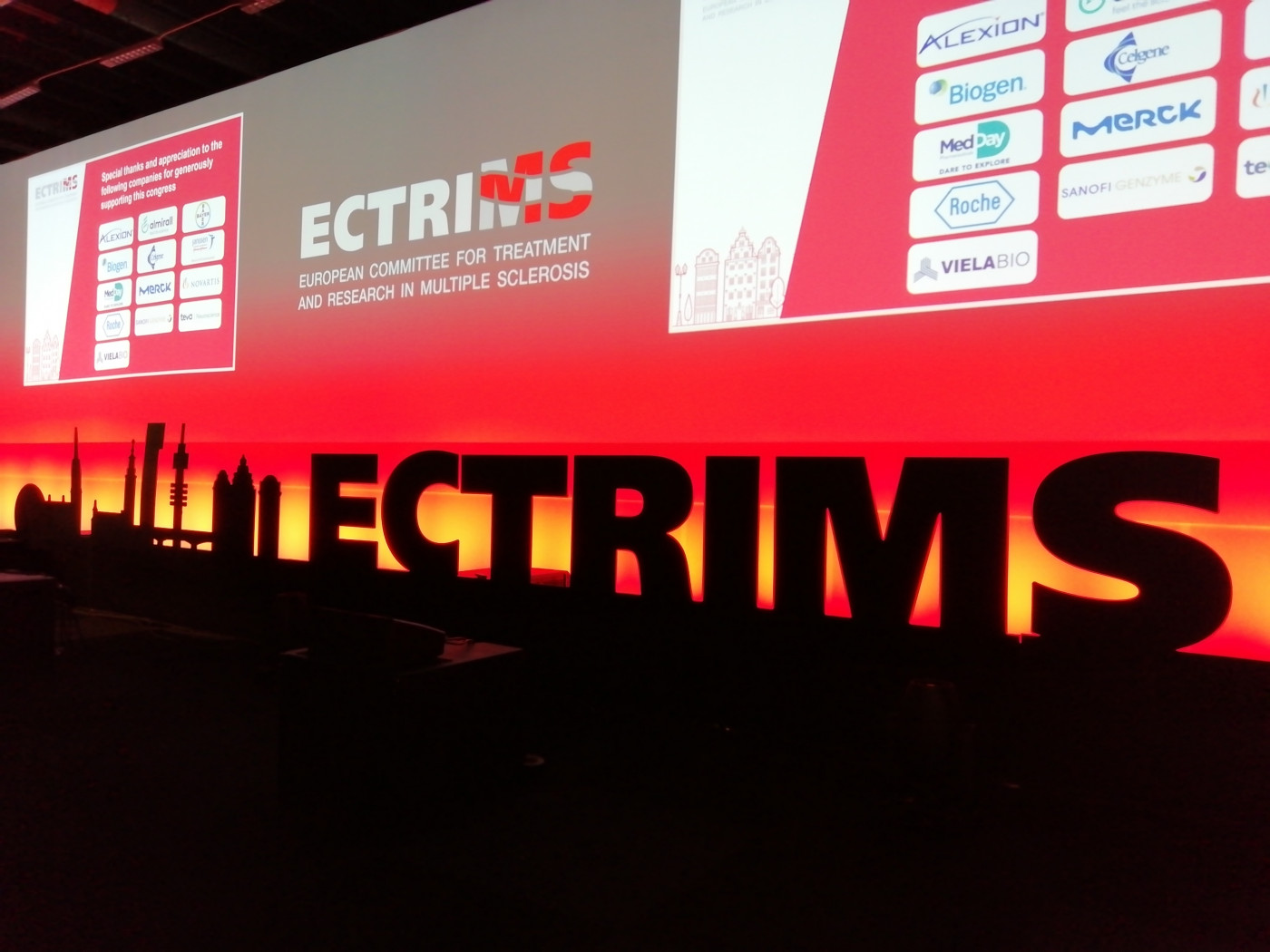#ECTRIMS2019 – No Retinal Thinning with Ocrevus in Relapsing MS Patients, Phase 3 Trials Show
Written by |

#ECTRIMS2019
Treating relapsing multiple sclerosis (MS) patients with Ocrevus (ocrelizumab) is not associated with retinal thinning — unlike treatment with Rebif (interferon beta-1a), according to two Phase 3 trials.
The findings also showed a link between retinal thinning and brain volume loss.
The study, “Effect of ocrelizumab versus interferon β-1a on retinal thinning and association with brain volume loss in the OPERA I and OPERA II Phase III trials in relapsing multiple sclerosis,” was presented at the 35th Congress of the European Committee for Treatment and Research in Multiple Sclerosis (ECTRIMS), being held in Stockholm, Sweden, Sept. 11-13.
Data were presented by Ari Green, MD, neurologist and neuro-ophthalmologist from the University of California, San Francisco (UCSF), and medical director of the UCSF Multiple Sclerosis Center.
Two Roche-sponsored, pivotal Phase 3 studies — OPERA I (NCT01247324) and II (NCT01412333) — showed that, in comparison with Rebif, treating relapsing MS patients with Ocrevus reduced brain atrophy (shrinkage), and increased the proportion of patients achieving “no evidence of disease activity” (NEDA). NEDA takes into account relapses, disability progression, and brain lesions detected on magnetic resonance imaging (MRI).
In observational studies, reductions in brain volume have been associated with retinal thinning in people with MS. However, such analyses are still lacking in interventional clinical trials.
Aiming to address this gap, and also to evaluate the impact of Ocrevus (marketed by Roche-owned Genentech) on retinal thinning, the team further explored data from the double-blind period of the OPERA studies.
A technique called optical coherence tomography [OCT] was used to measure retinal thickness every 24 weeks in 112 people taking Ocrevus, and in 95 taking Rebif. In all, the participants were assessed four times over a total of 96 weeks.
According to Green, OCT is “an emerging biomarker in multiple sclerosis.” It is “non-invasive and more accessible than conventional MRI,” Green said, and can provide “important information about the neurodegenerative component of MS” as it is less vulnerable to inflammation than MRI.
As part of this study, researchers used OCT to calculate the yearly change in the thickness of two retinal layers — the peripapillary retinal nerve fiber layer (RNFL) and the ganglion cell layer (GCL) — as well as the volume of the eye’s macula. Brain volume change was assessed with a method known as SIENA.
Green noted that MS has been shown to be “associated with RNFL and GCL changes,” and these parameters have shown “associations with other measures of disease activity and progression.”
RNFL thinning was found in patients taking EMD Serono’s Rebif (minus 0.920 µm per year), but not in the group taking Ocrevus (minus 0.070 µm per year; no significant change).
“Treatment with ocrelizumab in terms of RNFL is associated with what appears to be almost a complete cessation of loss of nerve fiber over the period studied,” Green said.
Further, no significant yearly changes were observed in GCL thickness.
However, there was an effect on macular volume in the Ocrevus group. This effect was “similar in magnitude to what was seen in RNFL, and also appeared to show a near cessation of loss [of nerve fiber] in patients treated with ocrelizumab,” Green said.
The data further showed that RNFL thinning correlated, although modestly, with whole brain atrophy, and with loss of grey and white matters volume in the brain’s outer layer, the cortex. Grey matter is made of cell bodies, their projections and the sites where neurons communicate — called synapses — while the white matter contains nerve fibers.
Overall, based on the results, Green concluded that “the stable RNFL thickness slope is consistent with a protective effect of ocrelizumab [Ocrevus] on axonal integrity in patients with relapsing MS.”
“As clinical and MRI biomarkers in MS continue to improve, better correlations with OCT endpoints may be observed, improving the value of OCT as a practical tool for assessing disease progression and treatment outcomes,” Green added.
Of note, this study was sponsored by Roche. Two of the study’s authors are employees of Genentech, and another is an employee of Roche.


